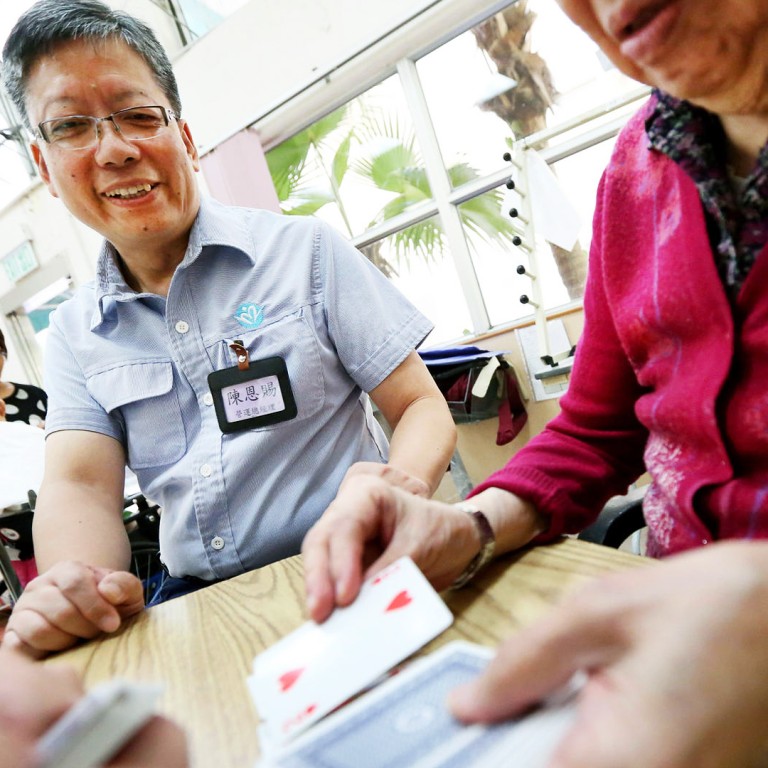
Staff shortages in Hong Kong threaten quality of care for elderly
Problem more acute in private residences that are losing out in bid to hire therapists and other crucial staff despite attractive pay offers
Staff shortages are threatening the quality of services for the elderly as a survey has found a third of physiotherapist jobs in nursing facilities are lying vacant.

He said about 60 per cent of all private care homes were unable to hire full-time physiotherapists, while up to 90 per cent of them were unable to hire occupational therapists, despite attractive salary offers.
"Don't forget, elderly services are competing with disabled services and medical services for the same group of people," said Elderly Services Association chairman Kenneth Chan Chi-yuk, who called for the government to set up an independent qualification system for therapists and nurses dealing with the elderly that would allow career advancement.
There are 548 private homes for the elderly in Hong Kong, with approximately 5,000 places, according to the Social Welfare Department.
A survey by the Hong Kong Council of Social Service found almost 34 per cent of the physiotherapist positions in 174 elderly services units, including day-care centres, remained unfilled. The survey was completed in 2013, but the result was only revealed this year in a report by the Physiotherapy Association. The survey offers the best glimpse into the shortage of therapists as the government keeps no records of manpower levels at private services catering to the elderly.
The problem becomes more intriguing as some care homes that offer monthly salaries as high as HK$60,000 still fail to attract physiotherapists to work full-time, home operators told the . Many homes rely on agencies for physiotherapy services, paying about HK$415 an hour.
Heads of the Physiotherapy Association and Occupational Therapy Association (OTA) said the phenomenon was caused by inferior work benefits and lack of diversity in cases. "New graduates would like to stay in hospitals to gain more experience as there are much wider facets of exposure. In an NGO, you can only stick with elderly or mentally disabled people," said OTA chairman Samuel Chan Yan-chi, adding hospitals offered better welfare and extra cash allowances.
Physiotherapy Association president Priscilla Poon Yee-hung said the training in public hospitals was more structured.
The number of graduates in physiotherapy at the Polytechnic University - the only tertiary institution offering degree courses - fell from 101 in 2005 to 60 in 2014. Occupational therapy graduates dropped from 65 to 46 over the same period. Poon said that was a result of the reduced job opportunities after the severe acute respiratory syndrome (Sars) outbreak in 2003.
However, the government said it had increased the amount of student intake this year, from 70 to 110 in physiotherapy and from 46 to 90 in occupational therapy.
The Education Bureau and the Food and Health Bureau did not say how they would fill the gap in demand.
Kenneth Chan condemned the government for not having the courage to approach services for the elderly as a cross-departmental issue. He said experienced nursing home therapists should be promoted to senior or managerial level, like those who work at hospitals.
Danny Chan, who runs the Wah Fung Nursing Centre in Kwai Chung, said it was almost impossible to hire a full-time therapist and agreed setting up a qualification system would help retain staff.

